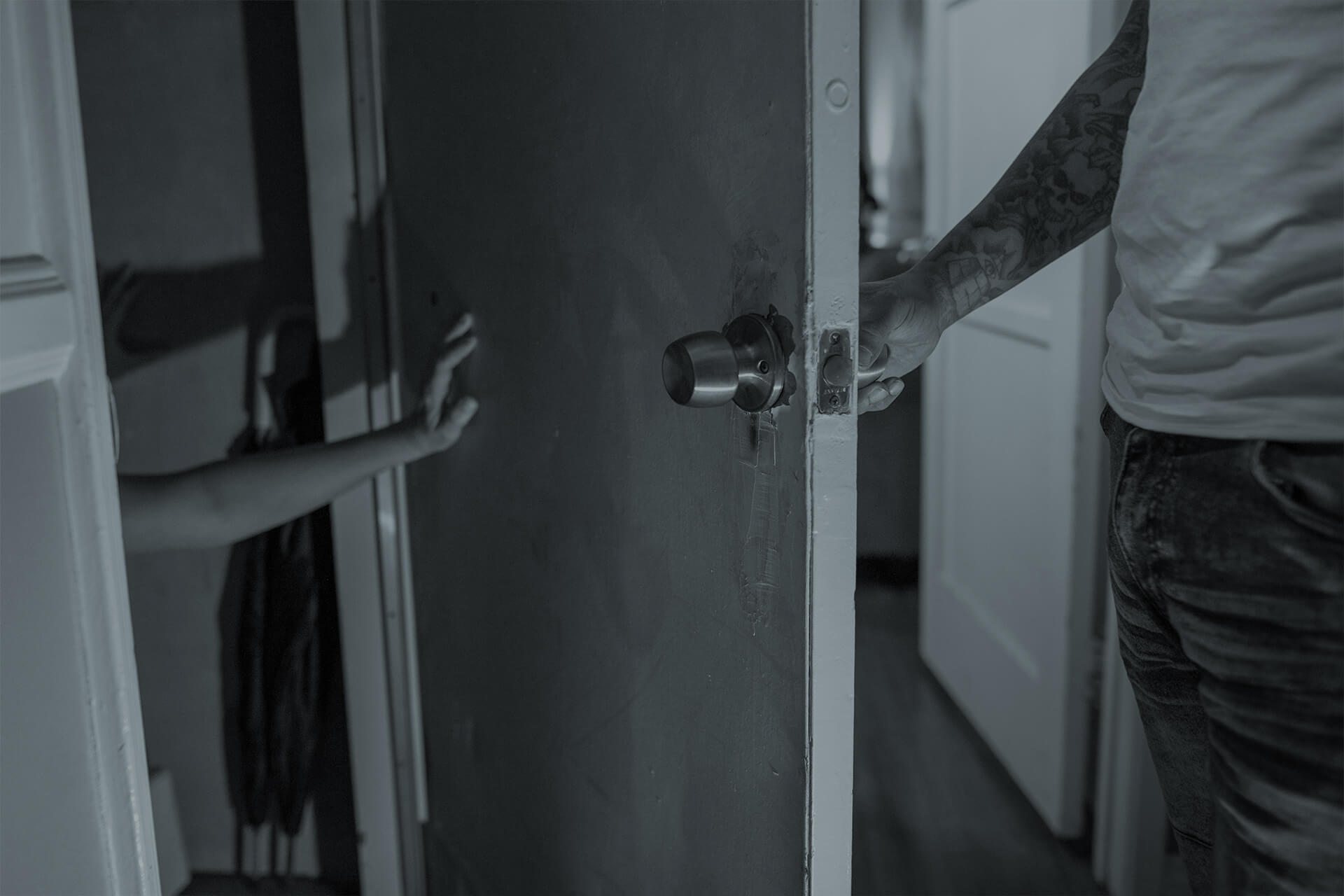Send your enquiry.
Contact us for a free, initial no obligation consultation.
"*" indicates required fields
Your information is safe and treated in accordance with our Privacy Policy
Diminished responsibility is a partial defence to murder. It means that the accused was suffering from an abnormality of mental functioning, so much so that they were not in control of their actions. If the jury accepts the defence, the murder charge must be downgraded to that of voluntary manslaughter.
Have you been accused of murder?
Our criminal defence solicitors represent those accused of serious criminal offences, including murder and manslaughter. If you have been accused of homicide, please contact us now for expert legal advice. We offer free police station representation. We are available to take your call 24 hours a day, 7 days a week.
What is diminished responsibility in criminal law?
In criminal law, diminished responsibility is a partial defence to murder. The defence of diminished responsibility is contained in Section 2 of the Homicide Act 1957 as modified by Section 52 of the Coroners and Justice Act 2009.
What is diminished responsibility in murder?
When someone pleads diminished responsibility, they are effectively saying that they were suffering from such an abnormality of mental functioning at the time of the offence that it impaired their judgement. Consequently, they should not be found liable for murder, as they did not intend to kill. Instead, they should be found liable for manslaughter.
The issue of intent is crucial in these cases. For someone to be guilty of murder, they must have had specific intent to end another person’s life, or to cause severe harm (which then resulted in fatal injuries). If the crime is premeditated in any way, then it cannot amount to manslaughter. Therefore, diminished responsibility can only apply where a fatal attack occurs on the spur of the moment.
What is the impact of a successful plea of diminished responsibility?
If the defence successfully pleads diminished responsibility, the murder charge must be downgraded to that of voluntary manslaughter. This is preferable for the defendant because murder carries a mandatory life sentence, whereas the sentence for manslaughter can be decided at the discretion of the judge.
Is diminished responsibility a full defence?
Diminished responsibility is not a full defence to murder, but it is a partial defence. An example of a full defence to murder would be that of self-defence. The other partial defences to murder are a loss of control/provocation and a suicide pact.
What is the current UK law on diminished responsibility?
The burden is on the defence to prove diminished responsibility. It is up to the jury to decide whether or not to accept the defence. Interestingly, the defence only have to prove their case on the ‘balance of probabilities’. This is unusual, as this legal test is normally reserved for civil cases. Ordinarily, a higher standard of proof is required in criminal cases. For example, the prosecution must prove the accused’s guilt ‘beyond reasonable doubt’.
What are the 4 key elements of diminished responsibility?
To successfully plead a case of diminished responsibility, the defence must be able to prove all four elements:
- That the defendant was suffering from an abnormality of mental functioning; and
- That this abnormality of mental functioning arose from a recognised medical condition; and
- That this abnormality of mental functioning substantially impaired their ability to understand the nature of their conduct, or to form a rational judgment, or to exercise self-control (or any combination); and
- That this abnormality of mental functioning provides an explanation for the defendant’s conduct
Let’s look at each element in turn.
Abnormality of mental functioning
Abnormality of mental functioning is assessed by reference to what a reasonable man would regard as abnormal. In practice, however, the assessment is made by medical experts.
The term ‘abnormality of mental functioning’ was introduced by the Coroners and Justice Act 2009. It replaced the previous term in the Homicide Act 1957 of ‘abnormality of the mind’. The language was updated to clarify the law, but does not revoke any previous case law.
Medical evidence is required to prove that the accused was suffering from an abnormality of mental functioning. The jury must decide whether or not to accept this evidence. However, where the medical evidence is unchallenged, and there is no other evidence to rebut the defence, the judge should with withdraw the murder charge.
Recognised medical condition
This abnormality of mental functioning must arise from a recognised medical condition. There is no definitive list of medical conditions that might be accepted by the jury. In the past, defence teams have successfully argued diminished responsibility on the basis of schizophrenia, adjustment disorder and alcohol dependency.
The condition must have come from ‘within’ the accused. This means that alcohol dependency will be accepted because it is a disease. However, suffering an abnormality of mental functioning due to binge drinking and recreational drug use will not be enough to argue diminished responsibility.
Substantially impaired judgment
This abnormality of mental functioning, which arose from a recognised medical condition, must have substantially impaired the defendant’s ability to:
- Understand the nature of their conduct; or
- Form a rational judgment; or
- Exercise self-control
In 2016, the Supreme Court was asked to clarify the meaning of ‘substantially’ in the case of R v Golds. The Court said that in the context of diminished responsibility, ‘substantially impaired’ means an “impairment of consequence or weight” and not “any impairment which is greater than merely trivial”.
Explanation for the conduct
Finally, this abnormality of mental functioning must provide an explanation for the defendant’s conduct. In other words, it was a contributory factor that led to the unlawful killing of the deceased.
How to raise the defence of diminished responsibility
If you have been accused of murder, our criminal defence solicitors can represent you throughout proceedings. If we believe that you have a partial defence on the grounds of diminished responsibility, our first step will be to get medical evidence in support of your case. This evidence is usually obtained from a clinical psychiatrist, but we can determine the best medical expert to approach in the circumstances.
We will then raise the defence of diminished responsibility at trial. We will work to prove the four-stage test, as outlined above. Our aim is to convince the jury that, on the balance of probabilities, you were suffering from diminished responsibility at the time of the offence.
Diminished responsibility on appeal
If the jury does not accept the defence, then there is always the possibility of pursuing an appeal. The appeal courts prefer that the defence of diminished responsibility and/or the medical condition was cited at the time of the original trial. However, it could be that advances in medical science have resulted in fresh evidence which need to be brought to the court’s attention. Alternatively, it could be that certain conditions were previously misunderstood or overlooked at the original trial, meaning they need to be re-examined by modern day standards.
This was applicable in the case of R v Ahluwalia 1992. The defendant had suffered years of abuse and violence from her husband. After one violent evening, she poured petrol on her husband’s bed while he slept and set it on fire. He died from his injuries and she was convicted of murder. Ahluwalia was convicted of murder. She appealed on the basis that she was suffering from endogenous depression at the time of the unlawful killing. This was overlooked at the time of the original trial. A retrial was ordered.
Is diminished responsibility just for murder?
The partial defence of diminished responsibility only applies to murder cases.
Diminished responsibility cases
There are many murder cases throughout British legal history in which diminished responsibility has been raised as a defence. This includes that of R v Campbell 1987. The defendant was accused of murdering a female hitch hiker after she refused his sexual advances. She hit him in the eye, prompting Campbell to punch her in the throat. He became panicked after realising that she was badly wounded and he eventually killed her.
Campbell suffered from epilepsy, but this was not raised as a defence at the original trial. Medical opinion at the time did not think that epilepsy could have substantially impaired his judgment. However, this opinion was later reversed, and it was found that frontal lobe damage could affect the control of emotions, control of impulses and forward planning. He appealed his conviction and a retrial was ordered.
Solicitors – England & Wales
As specialist criminal defence solicitors, we know how to plead a defence of diminished responsibility. This defence can apply to a vast range of situations, particularly those where domestic violence, alcoholism and other medical conditions are at play. Anyone who was suffering from a mental impairment at the time of the unlawful killing should not face a murder charge. We will work hard to make sure this does not happen to you.
Call us on 0333 009 6275. We are available to take your call 24 hours a day, 7 days a week.
You can also email us on enquiries@ashmanssolicitors.com or complete our Free Online Enquiry Form and we’ll be in touch soon.




